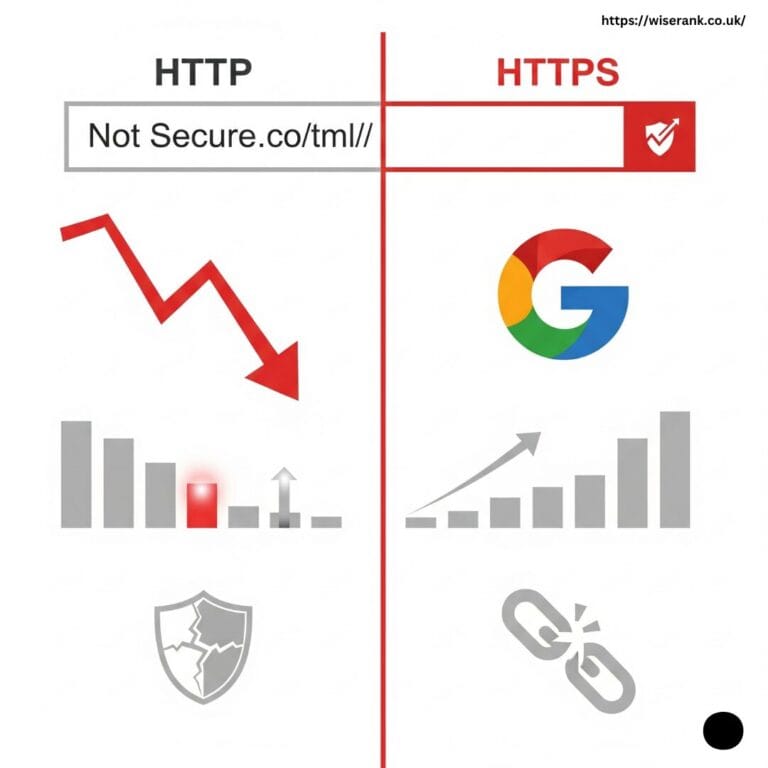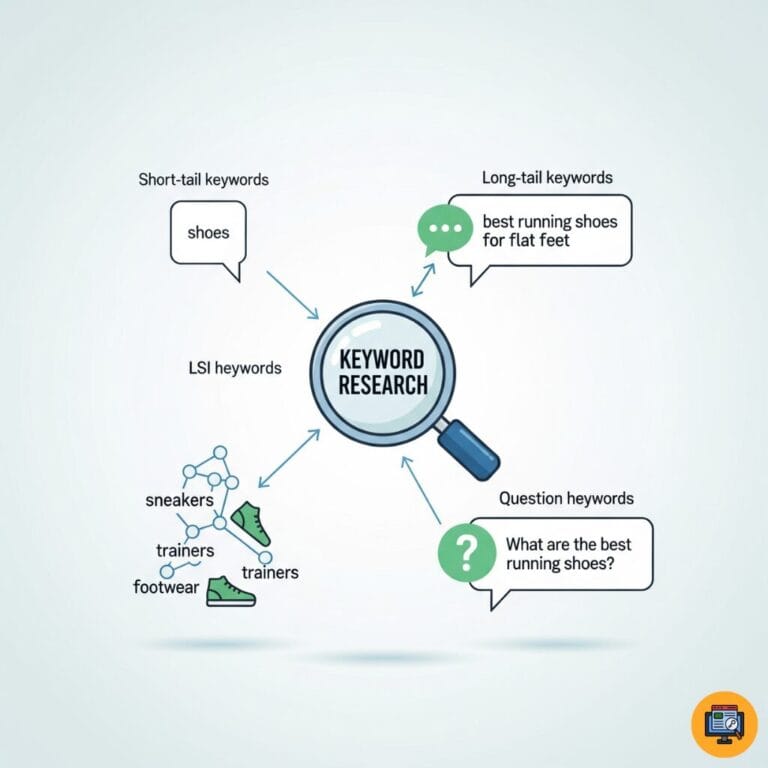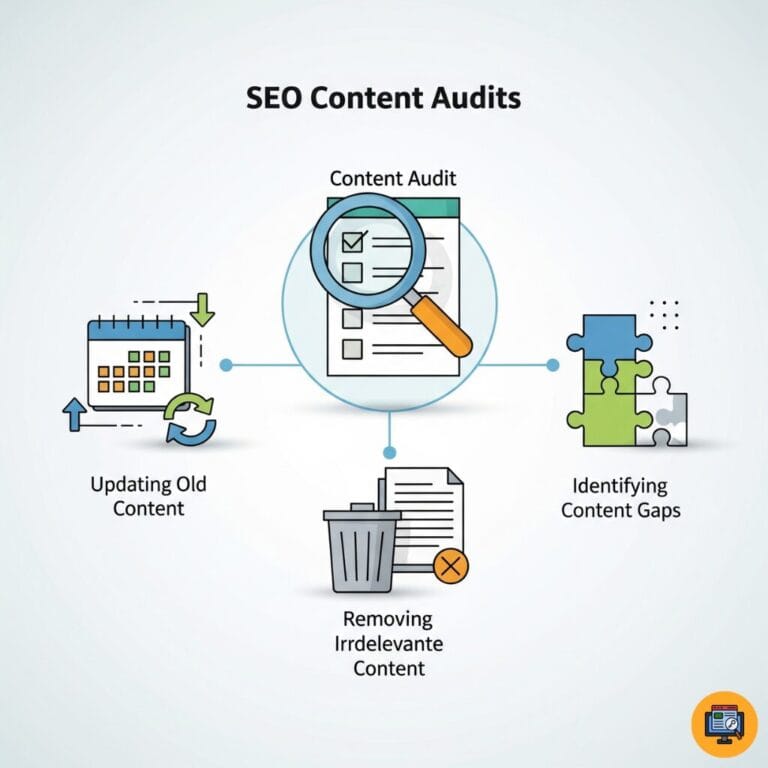Running a small business in the UK means every penny counts. You may not have the budget to hire an agency or SEO consultant right away. But that doesn’t mean you can’t improve your website ranking. With the right DIY SEO strategies, you can make progress on your own.
This guide will give you step-by-step SEO tips for small businesses that are simple, affordable, and proven to work.
Why Small Businesses Need DIY SEO
Imagine this: you run a bakery in Manchester. A customer searches “birthday cake near me” on Google, but instead of your bakery, they see a bigger chain store. That means you lost a sale.
This happens daily to small businesses. Without SEO, your website is invisible. The good news? Even small steps can help you show up and win more customers.
Step 1: Understand What People Search
SEO starts with keywords. These are the words your customers type on Google.
For example:
- “plumber in London”
- “affordable accountant near me”
- “best café in Birmingham”
👉 Use free tools like Google Keyword Planner, Ubersuggest, or even Google’s “People Also Ask” box to find what people are searching.
Step 2: Optimise Your Website Pages
Once you know your keywords, add them in the right places:
- Page title
- Meta description
- Headings (H1, H2)
- First paragraph of your content
- Image alt text
Example: If your target keyword is “affordable SEO for small businesses”, make sure it shows up in your title and naturally in the text.
Step 3: Create Helpful Content
Google rewards websites that answer customer questions. Write blog posts, guides, or FAQs that solve problems.
Ideas for small businesses:
- A plumber: “5 Quick Fixes Before Calling a Plumber”
- A café: “Top Coffee Trends in 2025”
- A shop: “How to Choose the Right Shoes for Kids”
Simple, clear, and helpful content works best.
Step 4: Make Your Site Mobile-Friendly
More than 70% of searches now happen on mobile phones. If your website is slow or hard to use on a phone, people will leave.
👉 Test your site with Google’s Mobile-Friendly Test.
👉 Use a clean design with easy buttons and readable fonts.
Step 5: Improve Your Website Speed
A slow website kills SEO. Customers won’t wait 10 seconds for your page to load which is why you need Technical Seo For Your Business.
Tips to speed up:
- Compress images (use TinyPNG or ImageQuality.online)
- Use a lightweight theme (if on WordPress)
- Enable caching
- Use a fast hosting provider

Step 6: Get Your Business on Google Maps
Local SEO is a goldmine for small businesses. Claim your free Google Business Profile (formerly Google My Business).
Make sure to:
- Add correct business name, address, and phone
- Upload high-quality photos
- Ask happy customers for reviews
- Post updates about offers or events
When people search “near me,” your profile can show at the top.
Step 7: Build Local Links
Google trusts websites that other sites link to. For small businesses, focus on local links:
- Join your town’s business directory
- Collaborate with other small businesses
- Get listed on review websites (Trustpilot, Yelp, etc.)
- Write guest posts for local blogs
Even 5–10 quality links can boost your SEO.
Step 8: Use Social Media to Support SEO
Social media doesn’t directly improve rankings, but it brings traffic and signals trust.
- Share your blog posts on Facebook and LinkedIn
- Use local hashtags on Instagram
- Ask customers to tag your business
The more people see and share your brand, the better your SEO works.
Step 9: Track Your Progress
Don’t guess if SEO is working — measure it.
- Use Google Analytics (free) to track visitors
- Use Google Search Console to see which keywords bring traffic
- Check your ranking once a month
If you see steady improvement, your DIY SEO is working.
Common DIY SEO Mistakes to Avoid
- Stuffing too many keywords into one page
- Copying competitor content
- Ignoring mobile optimisation
- Forgetting about local SEO
- Expecting results overnight
Remember: SEO takes time. Most small businesses see results in 3–6 months if they stay consistent.
When to Stop DIY and Hire an Expert
DIY SEO is great to get started, but sometimes you need extra help. Consider hiring a consultant if:
- You don’t have time to manage SEO anymore
- You want faster growth
- Competitors keep outranking you
- You need advanced strategies like link building or technical SEO
Conclusion
Small businesses in the UK can do SEO themselves if they follow the right steps. Start small: optimise your site, create helpful content, and focus on local SEO. With patience, you’ll notice more visitors, more leads, and more sales.
And when you’re ready for the next level, an SEO expert can take your business even further.
FAQs
1. Can small businesses do SEO on their own?
Yes, with simple DIY SEO tips, you can improve your rankings without big budgets.
2. How long does DIY SEO take to work?
Usually 3–6 months of consistent effort shows results.
3. What are the easiest DIY SEO tasks?
Optimising your titles, creating content, and setting up Google Business Profile.
4. Do I need tools for DIY SEO?
Free tools like Google Analytics, Search Console, and Keyword Planner are enough to start.
5. When should I hire an SEO expert?
If you’re short on time, need advanced strategies, or want faster results.






